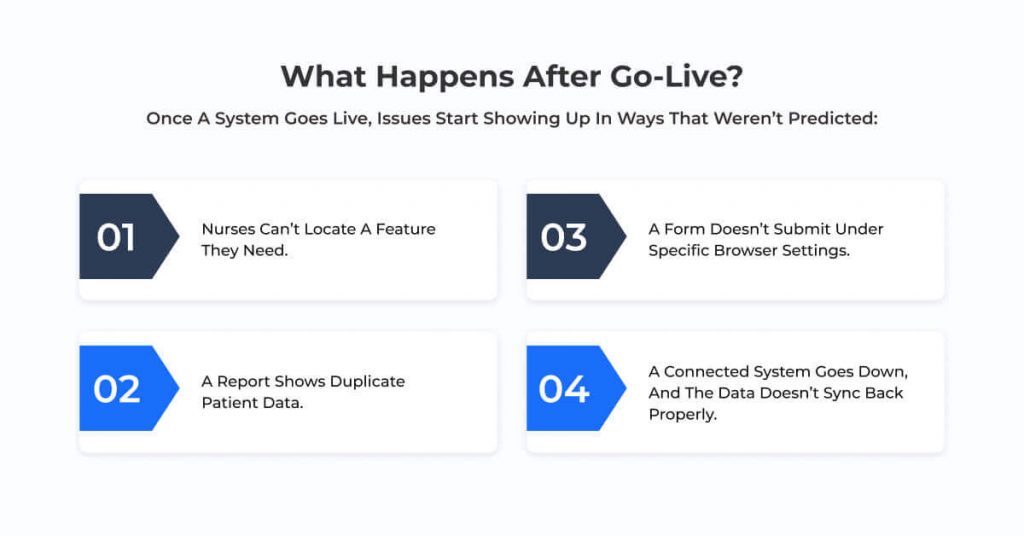In the U.S., missed calls at dental clinics are more than just unanswered phones. Each missed call can mean losing a patient who could bring in a lot of money over time. Studies show that a new patient can bring about $850 in their first year. Over their lifetime, they could bring in up to $11,000. Since about 35% of calls are missed, dental offices might lose over $102,000 a year and even more than $700,000 over the lifetime of those patients.
Also, most patients do not call back after getting voicemail or an unanswered call. About 75% of callers will not try again. This is a problem especially with younger people like millennials and Gen Z. Almost half in these groups avoid leaving voicemails or calling back, making it harder to connect with them.
The effects on daily work are tough too. Front desk staff have many jobs like checking in patients, verifying insurance, billing, and managing supplies. They often feel overwhelmed. Times like Monday mornings or lunchtime are particularly busy, leading to more missed calls. More than 90% of dental offices report trouble finding new front desk staff, and many current employees are older, making this problem worse.
Shortcomings of Traditional Call Handling Solutions
Many dental offices use voicemail, manual callbacks, or outsourced answering services to deal with extra calls. These methods have problems:
- Voicemail: It does not work well because 80-87% of callers hang up without leaving a message or call another dental office.
- Outsourced Call Centers: These services often lack dental knowledge. They can only take messages and cannot book appointments or answer complex patient questions, leading to a poor experience and missed chances to schedule visits.
- Interactive Voice Response (IVR) Systems: Automated phone menus can frustrate patients with confusing options, causing them to hang up and feel unhappy.
Hiring more front desk staff to answer phones is costly. Each receptionist costs around $45,000 to $50,000 a year. This is hard to afford, especially in areas where it is tough to find workers or money is tight.
Boost HCAHPS with AI Answering Service and Faster Callbacks
SimboDIYAS delivers prompt, accurate responses that drive higher patient satisfaction scores and repeat referrals.
How AI Enhances Call Management in Dental Practices
AI technology can help dental offices handle phone calls better. AI voice agents, like those from Simbo AI, use language processing made for dental offices. They answer calls right away and work 24 hours a day, 7 days a week to help patients.
These systems bring clear benefits:
- Reduced Missed Calls: AI answers over 90% of calls, much higher than the 65-68% with old methods. Some offices cut missed calls by 80% after using AI.
- Revenue Growth: Better call handling means more patients. For example, Unified Dental Care saw a 12% revenue rise after using AI. SGA Dental Partners added 900 new patients in just four months and made $500,000 more while AI handled 70% of calls.
- Better Staffing and Efficiency: AI saves front desk workers more than two hours a day by handling phone calls. This lets staff focus on harder tasks. Some offices lowered staff by 17% and made profits 24% higher after AI use.
- 24/7 Patient Access: AI works outside office hours, catching calls at nights, weekends, and holidays. Calls after hours are three times more likely to turn into appointments with AI than voicemail.
- Patient Satisfaction and Engagement: AI talks to patients in a friendly way, helping with insurance, billing, procedures, and appointments. Some clinics saw a 43% rise in patient happiness.
- Compliance and Security: New AI systems follow rules like HIPAA. They keep patient information safe and secure.
AI Answering Service with Secure Text and Call Recording
SimboDIYAS logs every after-hours interaction for compliance and quality audits.
AI and Workflow Automation: Streamlining Dental Practice Operations
AI does more than just answer calls. It connects with dental office software like Dentrix, Eaglesoft, or Open Dental. This lets it book, cancel, and change appointments instantly. It also helps check insurance automatically.
Important AI features that help office managers and IT staff include:
- Real-Time Appointment Scheduling: AI updates appointment slots instantly to avoid double bookings and long wait times. Some offices saw appointments rise by 20% to 30% after AI was added.
- Automated Reminders and Follow-Ups: AI sends reminders by text, email, or calls, cutting no-shows by up to 40%. This saves about $200 per missed appointment.
- Smart Call Routing and Escalation: AI can tell which calls are urgent and send those to staff. Simple questions are handled by AI, so staff can focus on harder tasks.
- Outbound Patient Communication: Some AI systems call or message patients for appointment confirmations or treatment reminders, improving communication.
- Multi-Location Scalability: AI can manage calls for many offices in one system. This keeps the brand consistent and patient experience the same across locations. Group Dentistry Now said AI helped dental groups save millions yearly by managing calls better.
- Multilingual Support: AI can talk in many languages, helping patients from different backgrounds.
- Advanced Analytics and Reporting: AI gives detailed reports on call numbers, busy times, and booking trends. Office managers can use this data to plan staff schedules and improve operations.
- Cost Efficiency with Modern Phone Systems: Using AI with internet phone systems (VoIP) cuts communication costs by up to 60% compared to old phone lines. VoIP lets staff answer calls on mobile devices and supports smart call routing with AI.
Manage High Call Volume with AI Answering Service
SimboDIYAS scales instantly to meet spikes in patient demand without extra cost.
Real-World Examples and Results
Dental offices that use AI phone systems see quick results. Normandy Lake Dentistry kept a 90% call answer rate with Simbo AI while handling thousands of calls monthly. This reduced stress for staff and helped fix workflow issues fast.
Kare Mobile Inc. saw missed calls drop by 80%, saving staff time and making it easier for patients to get through. Balfour Dental booked 3-5 new appointments daily from after-hours calls, adding $27,000 in monthly income.
Setting up AI is also fast. Most systems take 2 to 4 weeks to install, including fitting with office software, training staff, testing, and launching. Staff often need just 2 to 4 hours of training to start lowering missed calls and raising revenue.
Considerations for Implementing AI Call Management Solutions
When dental offices choose AI phone systems, they should think about:
- Dental Industry Knowledge: The AI should understand dental terms and office steps well to answer correctly.
- Integration Capabilities: It must work smoothly with current scheduling software and phone systems to update appointments in real time.
- Scalability and Customization: The system should fit the size of the practice and its call volume. It should allow changes like call handling rules and messaging styles.
- Data Security Compliance: The AI system must follow laws like HIPAA and protect patient data with strong encryption.
- Vendor Support and Updates: Ongoing help and software updates keep the AI working well as office needs and patient expectations change.
- Balance of Automation and Human Interaction: AI should help front desk workers by handling routine questions but still let humans reply to complex or special cases.
Final Thoughts on AI in Dental Call Management
High missed call rates are a big problem for dental offices in the U.S. They cause financial losses and work overload. AI systems like Simbo AI’s phone automation can cut missed calls, increase booked appointments, reduce staff stress, and improve patient communication.
Dental offices using AI can better meet patients’ needs for quick service all day and night. At the same time, they control costs and work more efficiently. In a health care world that is growing more competitive and patient-centered, using AI for phone calls is practical and needed to keep growing and provide good care.
Frequently Asked Questions
What is the impact of missed calls in dental practices?
Missed calls can lead to significant financial losses, loss of potential new patients, damage to reputation, lower treatment acceptance rates, and inefficiency in scheduling, costing practices up to $102,000 annually.
What are the statistics related to missed calls?
Dental practices experience a 35% missed call rate, with 75% of missed callers not returning. A practice missing 10 calls could lose $8,500 monthly.
Why do calls get missed in dental practices?
Factors include understaffing, unreliable phone systems, inadequate training, and limited availability during non-business hours.
What conventional solutions exist for missed calls?
Practices often use voicemail, call-back services, additional staffing, alternative contact methods, ringless voicemail drops, and call tracking software.
How do AI voice agents enhance call management?
AI voice agents automate call handling 24/7, improving patient communication, reducing missed calls, and providing accurate responses, thereby enhancing practice efficiency.
What are the benefits of AI voice agents in dental offices?
Benefits include improved patient satisfaction, increased efficiency, reduced costs, heightened patient engagement, and better data accuracy.
How can AI voice agents help with staffing issues?
AI reduces reliance on staffing for answering calls, enabling staff to focus more on in-person patient interactions and complex tasks.
What role do AI voice agents play in patient engagement?
AI voice agents personalize interactions, automate reminders, and enhance communication, fostering stronger patient relationships and improving treatment adherence.
What are some case studies demonstrating AI’s effectiveness?
Practices like Unified Dental Care and Normandy Lake Dentistry reported increased revenues and reduced missed calls after implementing AI solutions.
What should practices consider before adopting AI solutions?
Practices must balance automation with human interaction to maintain personalized patient experiences, ensuring AI complements existing workflows.
The post The Role of AI in Enhancing Call Management: A Solution for Dental Practices Facing High Missed Call Rates first appeared on Simbo AI – Blogs.






